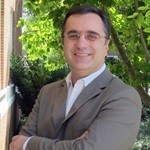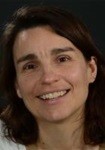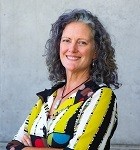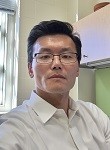About the Editors
Editor-in-Chief

Rong Li, PhD
Mechanobiology Institute and Department of Biological Sciences, National University of Singapore, Singapore
Dr. Rong Li is currently Distinguish Professor and Director of Mechanobiology Institute, National University of Singapore. She was originally trained in molecular biophysics and biochemistry and cell biology. Her research combines a wide range of approaches to investigate basic mechanisms in cellular dynamics and mechanics in the areas of cell polarity and asymmetric cell division, actin cytoskeletal dynamics and mechanics, genome instability and cellular adaptation, and the role of mitochondria in proteostasis. Her current research focuses on how mechanical stress affects genome transmission, organelle fitness and proteostasis during the aging process, and cellular and intracellular scaling in response to physiological and biomechanical cues.
Associate Editors

Konstantinos Konstantopoulos, PhD
Johns Hopkins
Baltimore, MD, USA
Dr. Konstantopoulos is currently William H. Schwarz Professor of Chemical and Biomolecular Engineering, Johns Hopkins University. His research is at the intersection of engineering and biology, focusing on how cells sense and respond to different physical cues. His major discoveries include functional selectin ligands, mechanism of cell migration in confinement, and extracellular fluid viscosity as a physical cue that regulates cancer metastasis. From a translational perspective, he develops microfluidic assays for diagnosis, prognosis and precision care of cancer patients.
 Julie Plastino, PhD
Julie Plastino, PhD
Ecole Normale Supérieure
Paris, France
Julie Plastino obtained her PhD in chemistry at the University of California at Berkeley. She then did her postdoctoral studies in the biophysics department at the Institut Curie in Paris, where she obtained a permanent researcher position in 2002, promoted to research director in 2013. In 2021 the team moved to the physics department of ENS, where they work on the biophysics of actin dynamics, cell motility and the cell nucleus, in part using microfluidic devices, and in vivo using nematodes as a model organism.

Beth L Pruitt, PhD
University of California Santa Barbara
Santa Barbara, CA, USA
Dr. Pruitt is currently Chair and Professor of Biological Engineering, University of California Santa Barbara. Her research interests span from custom microtechnologies for small-scale mechanical measurements to questions of how mechanics mediate biological signaling. She focuses on the biophysics and mechanisms of mechanobiology, such as the role of mechanical force in the evolution of structure and function in hPSC-derived cardiomyocytes and related topics of cell adhesion and mechanotransduction. She also develops technologies to enable quantitative measurements of cell responses to drugs or disease-causing mutations.

Sean X Sun, PhD
Johns Hopkins University
Baltimore, MD, USA
Dr. Sun is currently Professor of Mechanical Engineering at Johns Hopkins University. He was originally trained in theoretical chemistry and has expertise in statistical mechanics, theoretical biomechanics, and biophysics. His research uses mathematical and computational modeling combined with quantitative cell and tissue imaging using microfluidics and AI-based analysis. His research interests span cytoskeletal mechanics, cell migration, cell size and cell shape regulation, as well as nuclear mechanics, ion channels/pumps, epithelial mechanics, morphogenesis.

Virgile Viasnoff, PhD
CNRS, Marseille, France and Singapore
Dr. Viasnoff is a member of Centre national de la recherche scientifique (CNRS) and leads research groups at the Mechanobiology Institute, Singapore, and CENTURI Marseille, France. He was originally trained as a soft matter physicist and has expertise ranging from microrheology to cell and tissue mechanics. His current research focuses on the regulation of cell-cell adhesion, cell polarity and tissue organisation in response to the local biophysical and biochemical properties of cell microniches. His research employs single-cell and organoid technologies coupled with novel biofunctionalised devices and microscopy techniques for live cell and tissue observations.

Jie Yan, PhD
Department of Physics and Mechanobiology Institute, National University of Singapore
Singapore
Dr. Yan Jie is currently Professor of Physics and a Principal Investigator in the Mechanobiology Institute, National University of Singapore. He is a single-molecule biophysicist who conducts research on the micromechanics of DNA and proteins. Areas of research in his lab include force-dependent conformations and interactions of nucleic acids and proteins, mechanosensing of cells at cell-ECM adhesion and cell-cell junction, mechanisms of chaperone-mediated protein folding, and chromosome packaging, gene regulations, and DNA damage repair.
Advisory Editor
 Senior Editor | Daryl David, PhD, Springer Nature, Germany, ORCiD
Senior Editor | Daryl David, PhD, Springer Nature, Germany, ORCiD
Daryl David obtained his PhD with Tony Harris at the University of Toronto in the Collaborative Program in Developmental Biology, working on dynamic cytoskeletal networks and their regulation by the cell polarity machinery during Drosophila embryogenesis. For his EMBO postdoctoral Long-Term Fellowship with Pascale Cossart at the Pasteur Institute, Daryl investigated secreted virulence factors of Listeria monocytogenes and their host cell targets. Daryl joined Nature Communications in February 2018 before joining Nature Cell Biology in September 2021. He is also an advisory editor for npj Biological Physics and Mechanics. Daryl is based in the Berlin office.
daryl.david@nature.com
Editorial Board Members
Stephan Grill, PhD
Max Planck Institute of Molecular Cell Biology
Dresden, Germany
Dorit Hanein, PhD
University of California
Santa Barbara, USA
Chia-Lung Hsieh, PhD
Academia Sinica
Taipei, Taiwan
Dagmar Iber, PhD
ETH Zurich
Basel, Switzerland
Paul Janmey, PhD
University of Pennsylvania
Philadelphia, PA, USA
Roger D Kamm, PhD
Massachusetts Institute of Technology, Departments of Biological Engineering and Mechanical Engineering
Cambridge, MA, USA
Thomas Lecuit, PhD
Collège de France
Paris, France
Alexandre Lewalle, PhD
National Heart and Lung Institute, Imperial College London
London, UK
Jean-Léon Maître, PhD
Institut Curie
Paris, France
Boris Martinac, PhD
Victor Chang Cardiac Research Institute
Sydney, NSW, Australia
Amrinder Singh Nain, PhD
Department of Mechanical Engineering, Virginia Tech
Blacksburg, Virginia, USA
Hadi Nia, PhD
Boston University
Boston, MA, USA
Alison Elise Patteson, PhD
Department of Physics and BioInspired Institute, Syracuse University
Syracuse, NY, USA
Ana-Suncana Smith, PhD
Friedrich Alexander University
Erlangen-Nürnberg, Germany
Triantafyllos Stylianopoulos, PhD
University of Cyprus
Nicosia, Cyprus
Hervé Turlier, PhD
Collège de France, CNRS, Inserm
Paris, France
Amir Vahabikashi, PhD
Department of Bioengineering, Northeastern University
Boston, USA
Danijela Matic Vignjevic, PhD
Institut Curie/IMSERM
Paris, France
Viola Vogel, PhD
ETH
Zürich, Switzerland
Sara Wickström, MD, PhD
Max Planck Institute for Molecular Biomedicine
Münster, Germany
Mingming Wu, PhD
Biological and Environmental Engineering department, Cornell University
Ithaca, NY, USA
Alpha Yap, PhD
The University of Queensland
Brisbane, Australia
Interested in joining the journal team?
If you are interested in joining the journal as an Editorial Board Member or Associate Editor, please complete this Google form. Associate Editors are part of the editorial team that handle manuscripts, while Editorial Board Members are regular reviewers and are consulted for ad hoc advice. We will contact you if your expertise meets the needs of the journal.
Nature Portfolio journals are committed to promoting practices that support diversity, equity and inclusion in science communication and publishing, and we strongly encourage gender, race, ethnic, geographic, career stage and other diversity in our journal teams. Our in-house staff will use your information only for the purposes of identifying new editorial team or board members. Please contact the journal by email if you would like to remove your information from these records.
Please note that we are not able to respond to all applicants.
